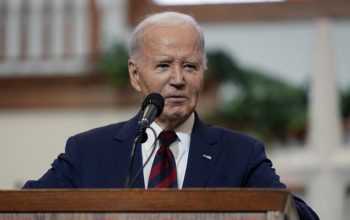news
GFDD at the XXXIV OAS General Assembly
June 8, 2004
The XXXIV General Assembly of the Organization of American States was held in Quito, Ecuador, from 6 to 8 June of the current year. Global Foundation for Democracy and Development participated as one of around seventy non-governmental organizations and was represented by its Executive Director in the U.S.A., Ms. Natasha Despotovic.
For the first time in the OAS history, there was a formally established period of time (11
a.m. – 1 p.m., June 6) for a Dialogue between the Ministers of Foreign Affairs, the Heads of Member State delegations and civil society sector representatives. The Resolution AG/RES. 1915 "Increasing and Strengthening Civil Society Participation in OAS Activities", approved at the XXXIII OAS General Assembly held in Santiago, Chile, 2003, ratified strategies for the inclusion of the civil society in the OAS activities, and established the Dialogue as a regular activity
within the framework of the General Assembly.
The dialogue focused on the issue of "Social Development and Democracy in Relation to the Impact of Corruption", which was at the same time the main topic of the Assembly, suggested by the host government.
As the result of the previous Hemispheric Forum of Civil Society (Quito, April 26 -27), "Proposals and Recommendations of Civil Society for the
OAS and its Member States" were developed. This document, produced by around 200 delegates of the non-governmental organizations of the Hemisphere, was afterwards distributed to all the governments and it is noteworthy mentioning that its chapter on Inter-American Convention against Corruption largely influenced the final draft of the "Declaration of Quito on Development and Democracy in Relation to the Impact of Corruption".
In the course of the June 6 Dialogue, the Civil Society Proposals and Recommendations have been summarized and presented to the Heads of 34 governmental delegations by 22 elected NGO representatives, Ms. Natasha Despotovic being one
of them. A dynamic exchange of views and experiences took place. It was considered extremely valuable by both parties and will continue to be a formal part of future OAS General Assemblies.
Among the NGOs participating at the General Assembly we can mention: Alliance of Pan-American Roundtables, Amnesty International, Transparency International, Canadian Foundation for the Americas, Corporacion Latinoamericana para el Desarrollo, Federacion Iberoamericana
de Ombudsman, FLACSO, Instituto de Investigacion, Documentacion y Derechos Humanos de la Republica Dominicana, Open Society Institute, Interamerican University Organization, Pan American Development Foundation, Participacion Ciudadana, FINJUS and The Carter Center
More active, numerous and representative participation of the hemispheric civil society organizations has been suggested and is to be fostered by the OAS General Secretariat as well as by Member
States.
Two paragraphs of the Declaration of Quito stress the importance of the collaboration with the civil society, namely:
"9. That the prevention and eradication of corruption is a responsibility of all states and that they must cooperate with one another, with the support and involvement of individuals and groups outside the public sector, such as civil society, nongovernmental organizations, and
community-based organizations, as well with the private sector, if their efforts in this area are to be effective", and:
"15. That the media and the various acts in civil society must play a fundamental role in the prevention of and fight against corruption, in accordance with domestic law and






